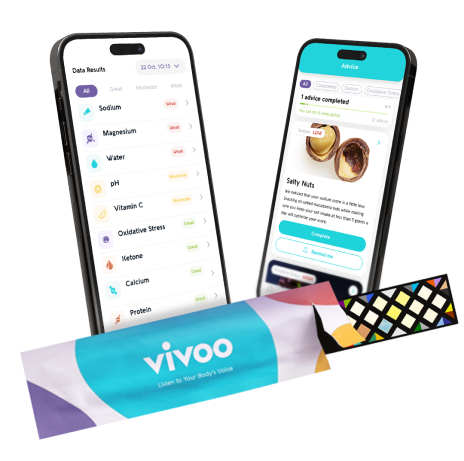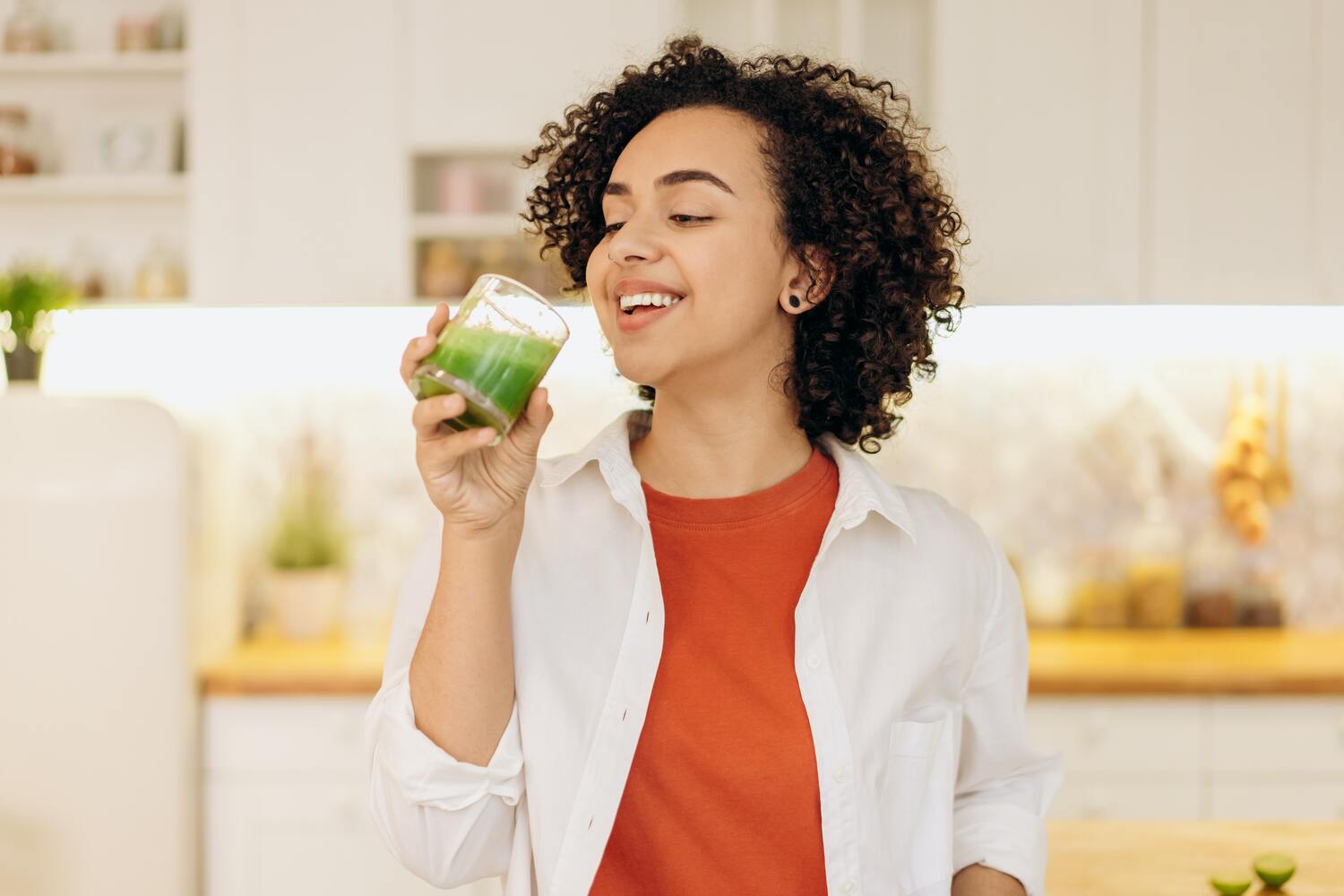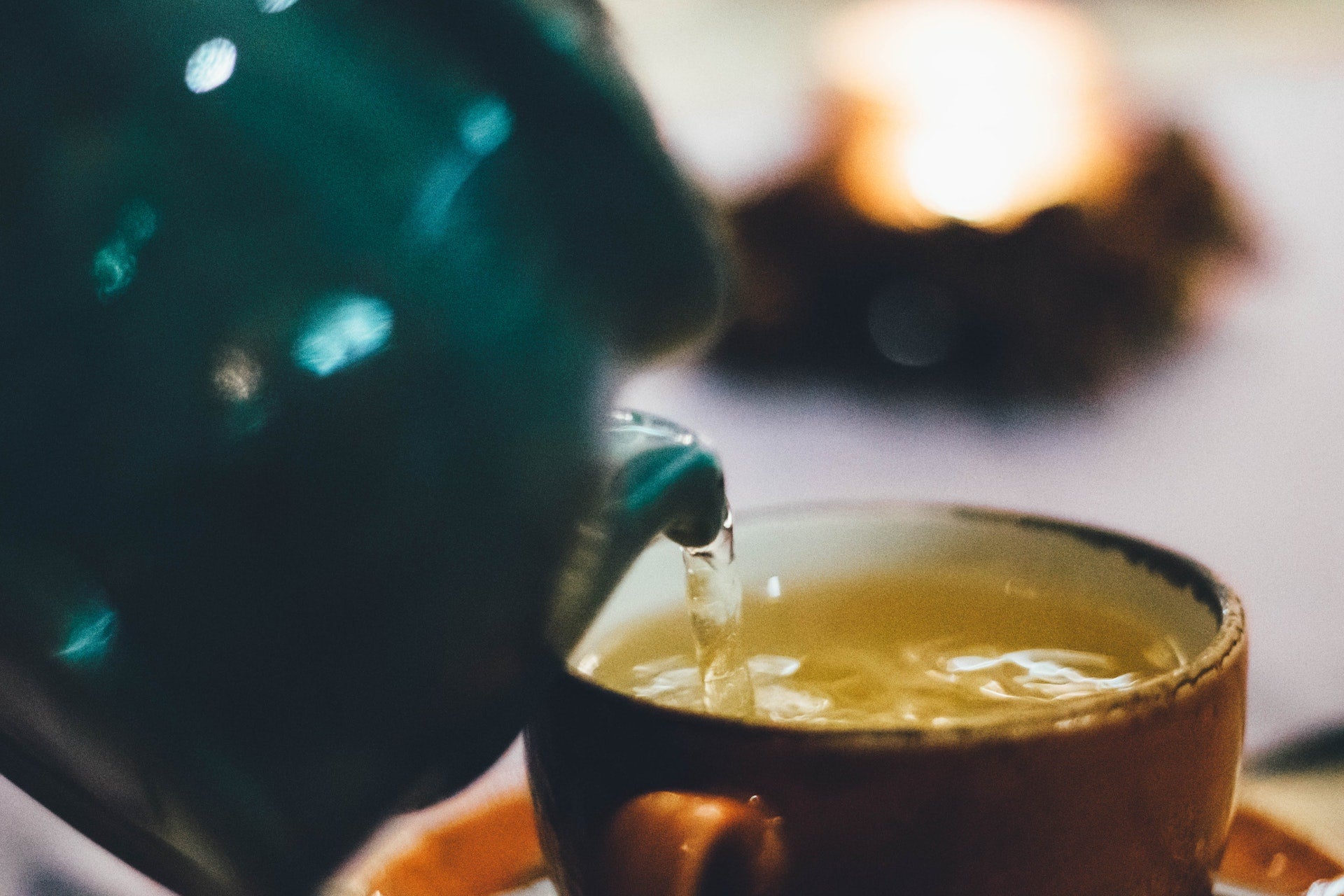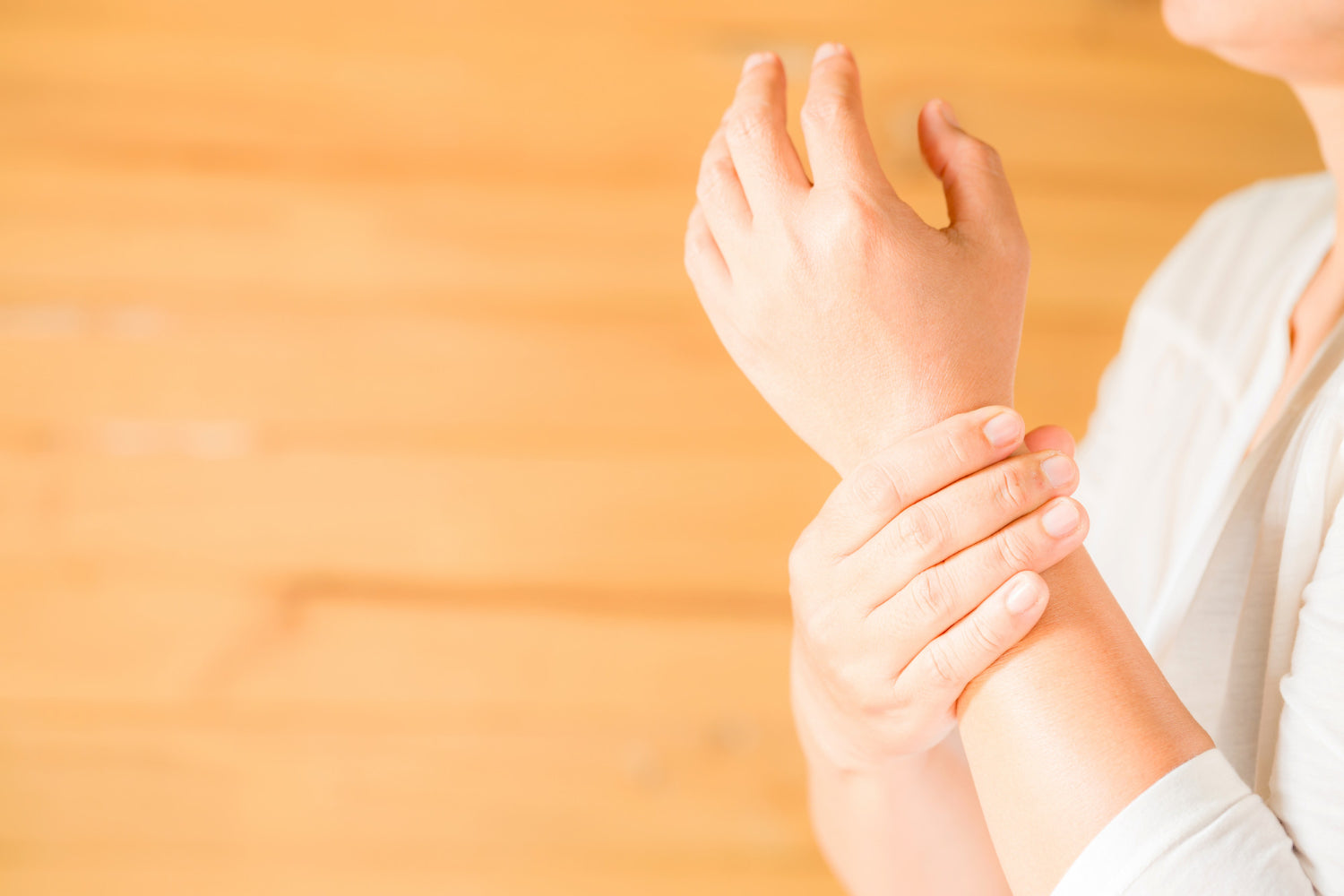What is Hydration?
Hydration refers to the process of maintaining adequate fluid levels in the body to ensure it functions properly. Your body relies on water to work as a fundamental building block, facilitating essential processes for optimal health.
Water, being a vital component, plays an integral role in various bodily processes including digestion, circulation, temperature regulation, and waste elimination. It is imperative to maintain adequate hydration levels to promote overall health and well-being.
Adequate hydration supports cognitive function, athletic performance, and skin health. The body's water balance is delicate because it loses water through activities such as sweating, breathing and urination.
Why is Hydration Important?
Ensuring proper hydration is paramount for maintaining overall health and bodily functions. Prioritizing proper hydration is a cornerstone of maintaining good health and supporting your body's various functions.
The importance of staying well-hydrated cannot be overstressed, as water plays a critical role in almost every biological process, from nutrient transportation to temperature regulation.
Optimal hydration levels are essential for cognitive clarity, physical endurance, and immune system strength. Additionally, it assists in food digestion, waste elimination, and joint lubrication.
Is Hydration Just Drinking Water?
The ingestion of water is not the only method to accomplish hydration, as it encompasses a holistic approach for sustaining the body's water equilibrium. This includes incorporating foods with high water content and electrolytes such as potassium, sodium, and magnesium in one's diet.
These electrolytes play a vital role in balancing fluids by assisting in the absorption and preservation of water at the cellular level. In addition, hydrating foods like vegetables and fruits contribute significantly to overall hydration due to their high moisture content.
However, it's important to note that beverages like energy drinks, which often contain caffeine and added sugars, might not contribute to hydration as effectively as plain water or natural hydrating sources. The important thing here is to provide the required amount of water with water and use other resources as support.
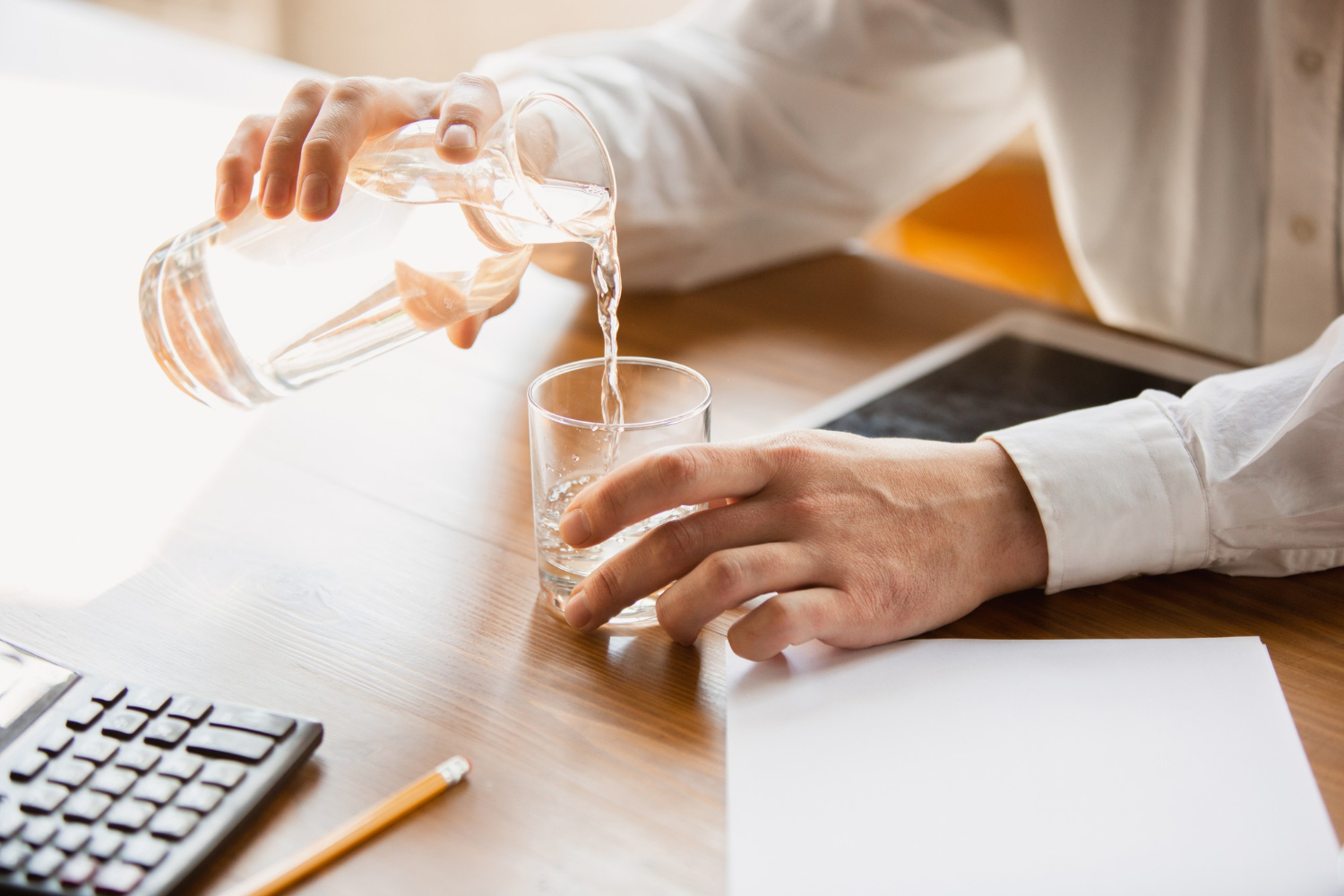
How Do You Know if You're Hydrated?
The assessment of the body's hydration status involves being attentive to both inner cues and external indicators. The sensation of thirst acts as a natural signal that your body requires more fluid, and serves as the initial indicator of dehydration. Nevertheless, relying solely on thirst may not always be adequate as it can be delayed behind the actual fluid needs of your body.
Observing the color of urine can also provide valuable insights; urine that is pale yellow or straw-colored suggests that proper hydration has been maintained, whereas darker urine indicates an increased need for fluids. Being observant towards physical signs such as dry mouth, fatigue, dizziness or reduced urine production can further assist in determining levels of hydration.
What Happens During Hydration?
Adequate consumption of fluids, particularly water, plays an essential role in maintaining the human body's optimal performance by initiating a series of crucial physiological processes that contribute to sound health.
Upon ingestion, water is absorbed into the bloodstream through the gastrointestinal tract and helps to maintain blood volume for efficient circulation, making it an indispensable component of overall bodily function. In addition to ensuring proper blood flow, sufficient hydration also supports nutrient and oxygen transport throughout the body system while facilitating waste removal.
Water also serves as a crucial regulator of body temperature through mechanisms such as perspiration. At a cellular level, water aids in enzymatic reactions that promote nutrient metabolism and energy production; hence it is critical for ensuring healthy cellular function. Consuming an adequate amount of fluids daily could be considered a prerequisite for achieving optimal physical performance since it sustains many vital bodily functions.
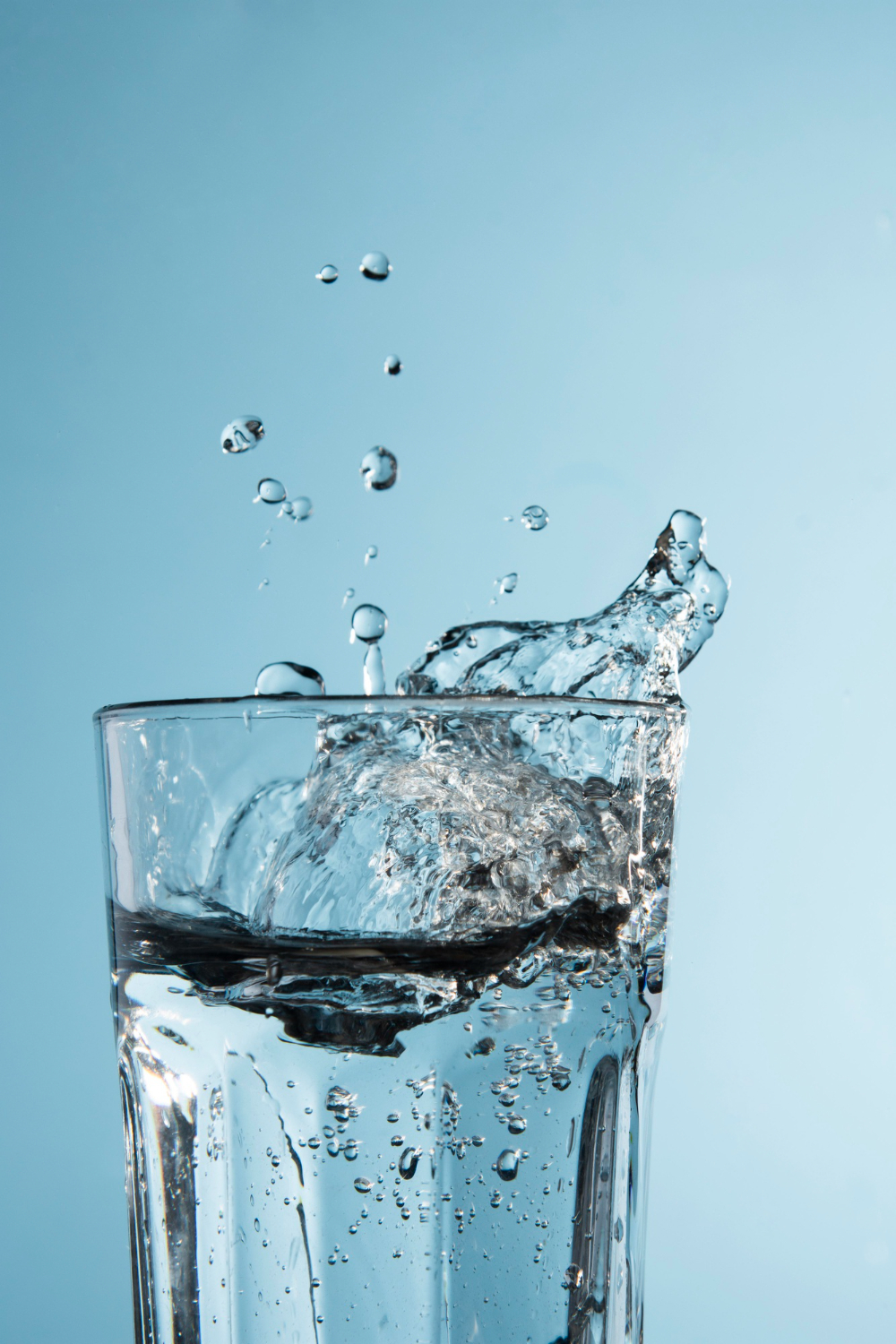
Can you Hydrate Without Drinking?
Although drinking fluids is the most straightforward technique of maintaining proper hydration levels, it's not the sole method. One can also sustain hydration by consuming water-based foods like fruits (such as watermelon, cucumbers, and oranges) and vegetables (such as lettuce, celery, and zucchini).
These nourishments increase your total fluid intake and give essential minerals and vitamins. Additionally, medical professionals may administer intravenous fluids or electrolyte-rich solutions to remedy severe dehydration. In certain situations, such as prolonged intense physical activities, sports drinks can provide electrolytes that aid in hydration and electrolyte balance.
It's important to note that while these sources can contribute to hydration, they should not be relied upon exclusively to meet your daily fluid needs. Plain water is essential for staying properly hydrated and also for optimal excretory system functions. Aiming for a balance between hydrating foods, beverages, and plain water each day ensures comprehensive fluid intake for optimal bodily function.
How do you Stay Hydrated Overnight?
To ensure that your body remains sufficiently hydrated while you sleep, it is essential to adopt a thoughtful approach. Despite being less aware of thirst during nighttime hours, it is crucial to establish habits that encourage overnight hydration. One way to achieve this is by drinking a glass of water before retiring for the night.
Additionally, keeping a bottle of water within close proximity can be helpful in case you wake up feeling thirsty. However, it's important not to over hydrate just before bedtime as this could lead to multiple trips to the bathroom and disrupt your sleep.
For optimal hydration without causing discomfort, consider consuming hydrating snacks such as a small piece of fruit or herbal tea. A balanced approach towards hydration during sleep contributes significantly towards maintaining healthy bodily functions and waking up refreshed.
Does Fruit Hydrate Better than Water?
While fruits have a high water content and can contribute to your overall fluid intake, water is the most direct and effective way to hydrate the body. Fruits provide a unique combination of hydration and nutritional value owing to their high water content and natural electrolytes.
Certain fruits such as watermelon, strawberries, and oranges contribute to your fluid intake due to their high water content. Besides providing adequate hydration, these fruits are also rich in essential vitamins, minerals, and antioxidants that promote holistic well-being.
The inherent sugars in fruits are accompanied by fiber which facilitates the gradual absorption of sugars and helps maintain stable blood sugar levels even during physical exertion. However, solely relying on fruit for hydration may not be as efficacious as consuming plain water directly particularly when rapid rehydration is needed. You can think that all of these together should be included in a balanced diet.
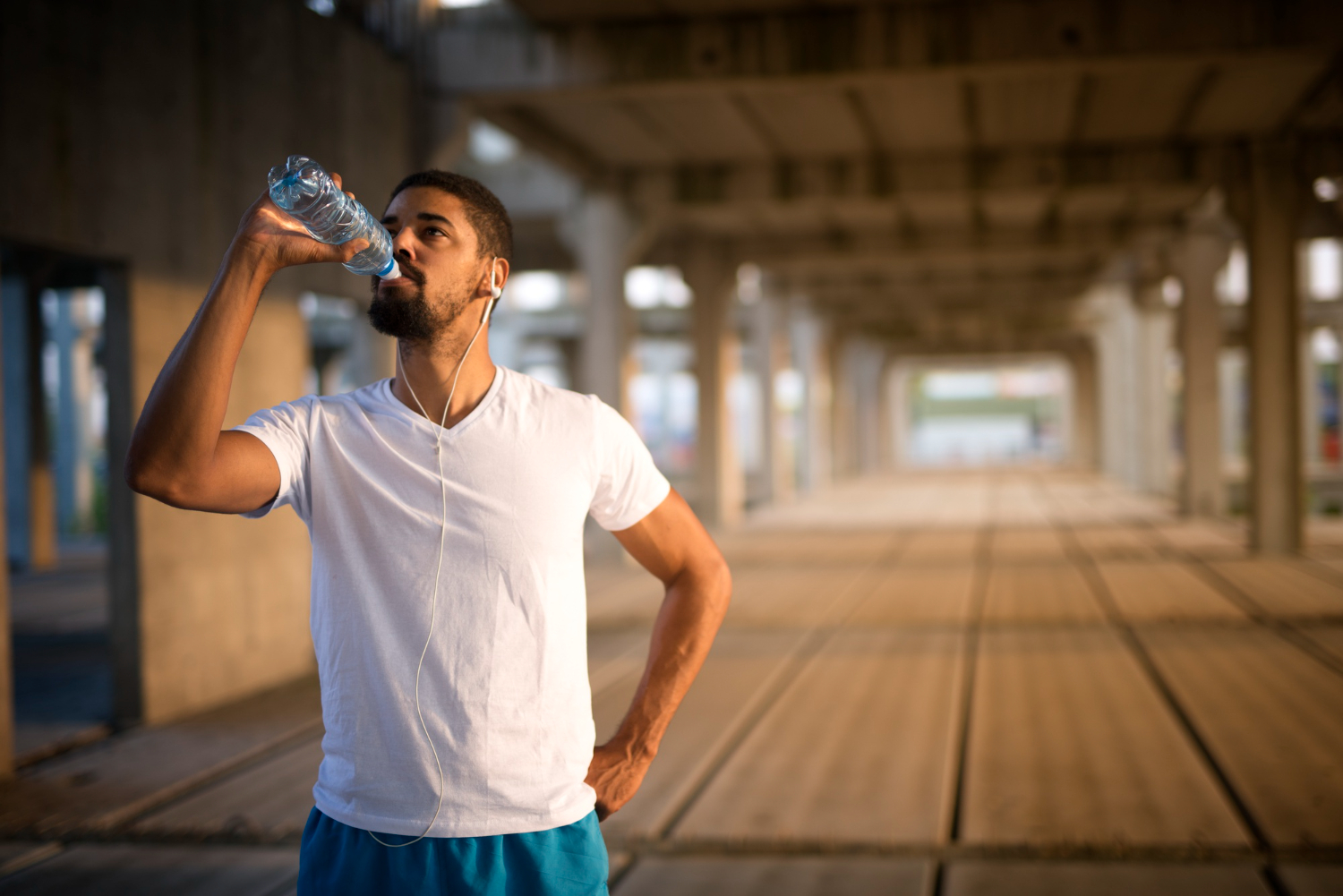
How Much Water Do We Really Need?
Various factors can impact the determination of an individual's optimal daily water intake, such as age, gender, activity level, climate and overall health. Calculating your daily fluid intake based on your individual needs and lifestyle can provide a clear roadmap for achieving optimal hydration.
It's important to understand that the amount of water you need to drink each day is influenced by various factors, such as your activity level and the climate you're in. Different individuals have varying hydration needs, and factors like activity levels and climate play a role in determining their required amounts of water. While a commonly referenced "8x8" rule may provide a basic guideline - recommending eight 8-ounce glasses of water a day - each person's hydration needs can differ significantly.
A personalized approach would encompass observing cues from one's body; while thirst is a reliable indicator, being proactive is vital as thirst may not always align with actual hydration necessities. As a general recommendation, men are advised to consume around 3.7 liters (or roughly 15 cups) of total fluids per day and women should aim for approximately 2.7 liters (or about 11 cups), inclusive of all sources of fluids like beverages and foods.
How do I Know if I’m Drinking Enough Water?
Assessing whether an adequate amount of water is being consumed requires a combination of mindfulness and observation. A straightforward way to determine hydration levels is by examining the color of one's urine. Urine that appears pale yellow or straw-colored signifies proper hydration, whereas dark urine may indicate a need for increased fluid intake.
Additionally, recognizing the signs of mild dehydration, such as dry mouth or fatigue, can offer valuable insights into your hydration status. Keeping a record of your fluid consumption can also help you maintain consistent hydration levels. However, it's important to note that thirst signals shouldn't be ignored.
While thirst is a reliable indicator, it might not always align with your body's actual hydration needs, especially in certain situations like colder weather or strenuous physical activities.
How to Calculate Your Daily Hydration?
There are several factors (like age, body weight, and activity levels) used to calculate your optimal daily water consumption. Here are the steps to follow:
- Divide your weight (in pounds) by 2.2- that’s your weight in kilos.
- According to your age, multiply this number by:
40- If you are younger than 30
35- If you are between 30-55
30- If you are older than 55
- Divide this number by 28.3
That number is how many ounces of water you need to drink. You can also divide this number by 33.8 to see your optimal water intake in liters.
When you exercise, your body needs more water than your daily amount because you lose more water when you sweat. It’s advised to drink an additional 12 ounces for every 30 minutes you exercise.
National Hydration Day can be a guide for you to see your precise water needs allowing you to adjust your water consumption.
Water’s Effect on Metabolism
Hydration and metabolism are the two essential processes for our wellness. We all know that increasing our hydration will help us to become healthier and lose weight easier, but how does it happen? Metabolism is the overall term for the chemical reactions in our bodies that keep us alive, and this system needs water to function.
When you become dehydrated, your body can’t create or burn energy effectively, and metabolism slows down. The good news is that these factors, overall, enhance weight loss. Some research showed that drinking 0.5L of water (approximately 17 oz) increases metabolic rate (resting energy expenditure) by 10-30% for a period of time.
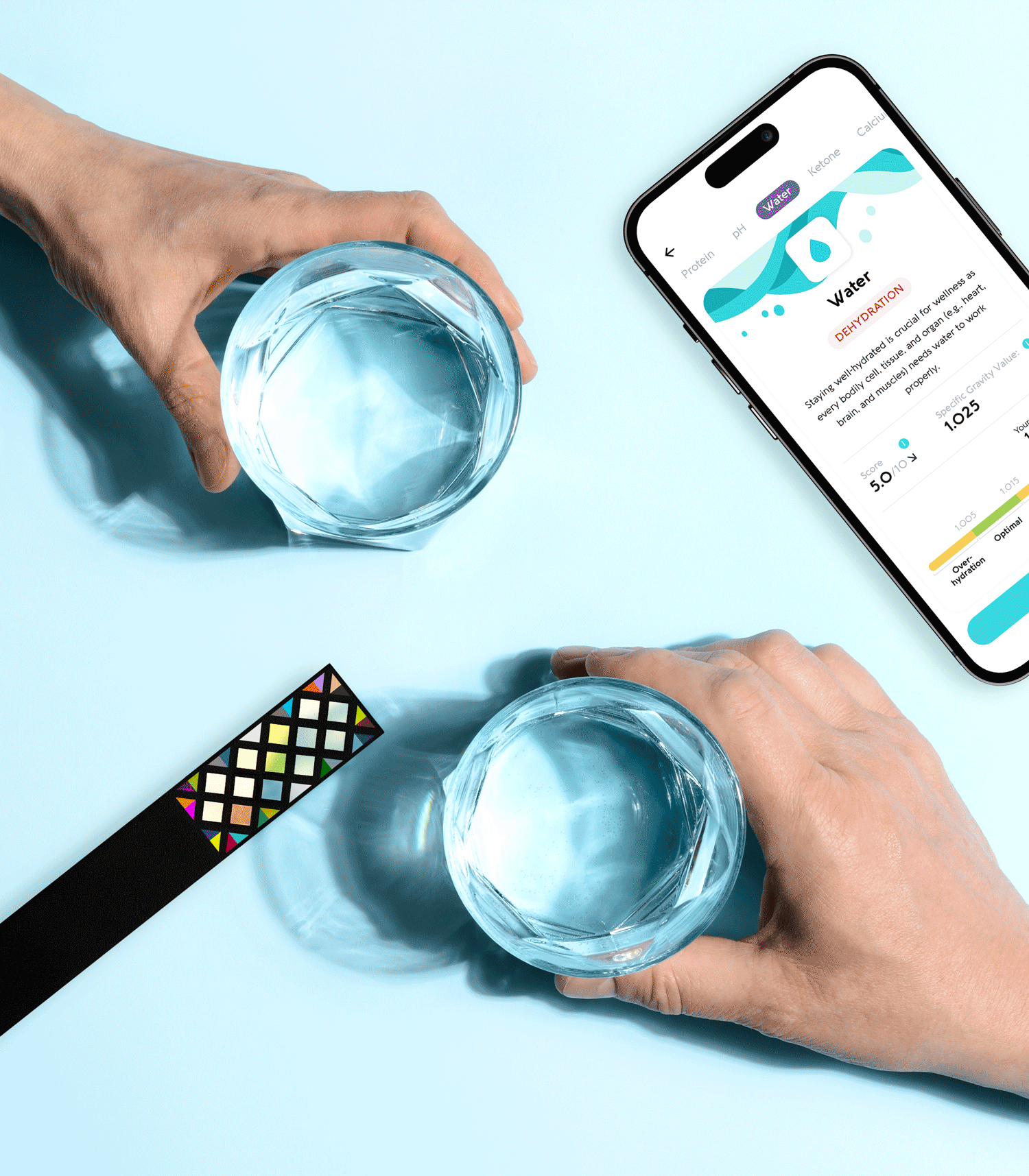
Learn Your Hydration Level with Vivoo
Vivoo knows the importance of water for your body, which is why it gives insight on your hydration level. Vivoo determines your hydration level based on the concentration of the urine. The specific gravity of urine gives insight into your hydration levels by comparing the density of your urine to the density of water.
You can change your daily habits to optimize your water intake. On National Hydration Day, if you want to give a gift to your body, you can try Vivoo and make some positive changes for your overall wellness.
How to Hydrate More
- Drink water after you wake up. This will create a fresh start for your body.
- Keep a water bottle in your sight.
- Choose sparkling water instead of sugary sodas. While drinking more water is a crucial step, it's important to note that beverages like coffee or tea, while contributing to your overall fluid intake, can have mild diuretic effects that might increase fluid loss
- Increase your vegetable and fruit intake, especially the ones with high water content.
- Add cinnamon, lemon, mint, or fresh fruits to your water to have a different taste. Opting for beverages without added sugar, such as herbal teas or infused water, can be a smart choice for staying hydrated while minimizing empty calorie intake.
- Keep track of your water consumption. You can use apps that will keep you motivated.
- Drink water when you feel hungry since sometimes thirst can be confused as hunger. Listening to your body's cues and adopting mindful habits are key steps to ensure you stay hydrated throughout the day. Remember, by the time you actually feel thirsty, your body might already be in the early stages of dehydration.
What Are Hydration Test Strips?
Dehydration is an important condition. Being even just a little dehydrated could disrupt cellular energy synthesis processes (leaving you feeling tired and exhausted), mess up your blood volume (making your heart work harder than usual), and hurt your body's ability to regulate its temperature. But how do you know if you're getting enough? A simple way to find out is to use hydration test strips.
It’s also possible to "overdo" hydration. Overhydration (medical term: hyponatremia) can cause symptoms like dehydration – i.e., nausea, confusion, and irritability – and be serious if it's not treated quickly. In other words, you can't have too little water, but you can't have too much eitherl.
If you're unhappy with your current hydration level, don't worry – there are plenty of ways to increase your intake. Drinking more water is always a good place to start, but you can also try adding some fruits and vegetables high in water content to your diet or drinking herbal teas regularly. Whichever route you choose, using hydration test strips is an easy way to track your progress and make sure you stay on the path of your wellness journey.
Introduction to Hydration Strips
Hydration strips are pretty much what they sound like: test strips that measure an individual's hydration level. Hydration test strips measure things like salivary osmolality and urine-specific gravity to determine one’s hydration status.
Types of Hydration Test Kits
There are 2 main types of hydration test kits available in the market: the first uses saliva samples, and the second calls for urine samples. Each works in a slightly different way.
Salivary Hydration Test Strips
As mentioned earlier, salivary hydration test strips determine a user’s hydration status by measuring a biomarker known as salivary osmolality (SOSM). Don’t be intimidated by its complex-sounding name. All SOSM means is the concentration of particles – primarily electrolytes – per liter of saliva. The higher your SOSM value, the more dehydrated you are. And vice versa.
An important thing to note about the use of salivary hydration test strips is that they require easy access to an osmometer (i.e., a device that “reads” osmolality). Although instructions vary according to the specific brand you purchase, here’s how you’d typically measure your hydration status with urinary test strips:
- Tear open a hydration test strip
- Insert the hydration test strip into the hand-held osmometer
- Swallow saliva in your mouth and generate a "fresh" sample
- Tap the tip of the test strip against your tongue on a downward angle until the osmometer beeps (an indicator that it’s done collecting your saliva sample)
- Wait for the sample to be analyzed; do not remove the test strip until you see your salivary osmolarity score and hydration status
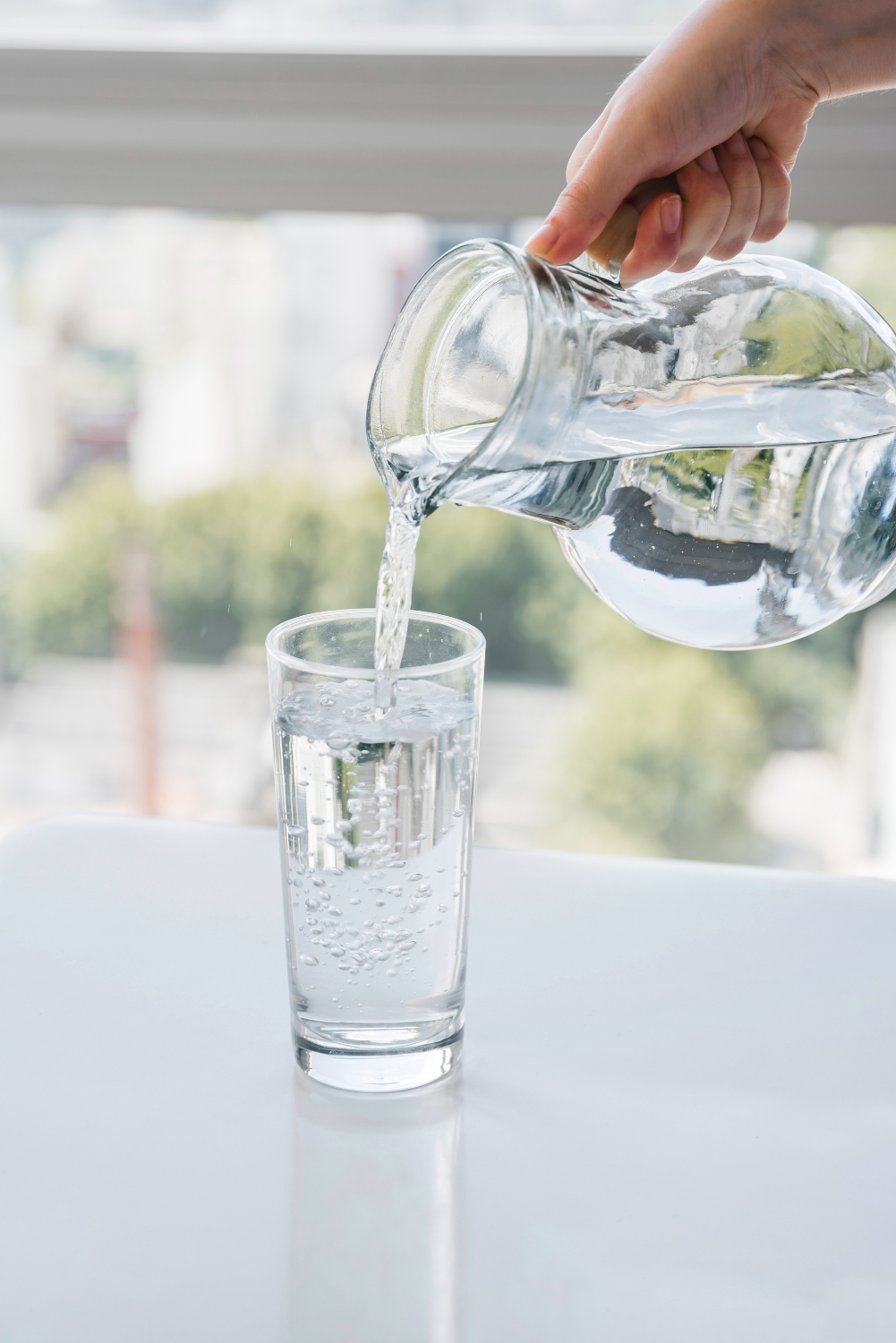
Urinary Hydration Test Strips
In contrast to the salivary hydration test strips, their urinary counterparts determine a user’s hydration status by measuring urine specific gravity (USG) – the concentration of particles in urine and the density of urine compared with the density of water.
At this point, it’s worth noting that urinary hydration strips have 2 distinctive advantages over salivary test strips. The first is convenience. While hand-held osmometers are indeed portable, they can still be quite bulky and challenging to carry around daily. Compare that to urinary test strips, which change color based on your USG – helping you estimate your hydration status in reference to a color chart. When it comes to optimal hydration levels, every laboratory has its special and unique measuring chart. For example, for Vivoo, the optimal range for USG is 1.005 to 1.015; anything below suggests that you’re overhydrated, while anything above hints that you’re dehydrated.
We all know that being properly hydrated is important for our overall wellness. But what if we told you that there is a new way - a better way- to check on your hydration levels? Meet Vivoo! You can now get real-time data on your water levels - and 8 other parameters - with Vivoo's at-home urine test. That's right, with the Vivoo App, you can find out whether you're properly hydrated, your urine pH, calcium levels, and more. This makes it much more practical to get many results instead of just one.
What is a Urine-Specific Gravity Test?
The urine specific gravity test compares the density of urine with the density of water and can provide valuable insights into your hydration status.
What are the possible results of the urine specific gravity test?
Water’s specific gravity value is 1.000. The more concentrated the fluid is with more particles, the higher its specific gravity value. Because urine contains various waste products filtered out by the kidneys, it is only natural to expect its specific gravity value to measure higher than 1.000.
While it might vary slightly between different laboratories, the normal values of specific gravity for urine is generally between 1.005 and 1.035. If you’re overhydrated, your urine-specific gravity will typically show a value close to 1.000. On the contrary, if you’re dehydrated, your urine-specific gravity will typically show a value of more than 1.020.
